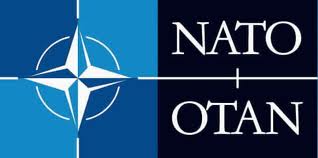What Kind of Sovereignty? Examining Alternative Governance Models in the South Caucasus[Over] 8th Workshop of the PfP Consortium Study Group “Regional Stability in the South Caucasus”
On 07-09 November 2013, Mr. George Niculescu, the Head of Research of the European Geopolitical Forum, attended the 8th Workshop of the PfP Consortium Study Group “Regional Stability in the South Caucasus”, held in Reichenau (Austria). Mr. Niculescu moderated the panel on “Alternative Models of Sovereignty in Practice” aiming to propose practical solutions for “joint political and administrative” governance in the South Caucasus. Distinguished panelists from Armenia, Azerbaijan, Germany and the United Kingdom put forward their thoughts on the subject, while the audience consisting of officials and experts from regional and international think tanks, education institutions, and civil society actively debated panelists’ proposals. Mr. Niculescu concluded that: “Rather than trying to impose unilateral solutions involving the final status of the unrecognized political entities in the South Caucasus, regional states and relevant international actors should rather focus creative energies on setting up transitional processes aimed at achieving multilateral governance over the regional commons. Moreover, as suggested by lessons learned in the Western Balkans, region building strategies should effectively complement international efforts for conflict transformation. However, a champion for regional integration is still missing in the South Caucasus. Potentially, the EU could revitalize its involvement in strengthening regionalism in the South Caucasus in strategic coordination with Russia and Turkey“. Click here to see an outline of the workshop and here to see the ensuing policy recommendations.
- Thursday, 16 January 2014, 14:57
Dissecting the prospects for South Stream beyond the media hype[Over]
 By Valentin Stoyanov By Valentin Stoyanov
EGF Affiliated Expert
Gazprom’s South Stream gas pipeline project has been highly visible in the European media in recent months and appears to be going from strength to strength. The project seems to have high level political support and there is much speculation that actual construction is imminent, particularly in Serbia and Bulgaria. There are also rumors that the Russian company, Stroytransgaz, has signed “construction contracts” and is ready to commence operations. Further, in December 2012 there was even a symbolic first welding of pipes in the Russian coastal town of Anapa. For better or for worse, and taking into account the wider energy security debate between the EU and Russia, all of these developments appear to reflect “evidence” that the South Stream project is just about upon us. READ MORE
Guest contribution: Gazprom is still relevant to the EU market, but for how long? [Over]
 by Professor Natasha Udensiva by Professor Natasha Udensiva
The U.S. shale gas revolution is spreading: more and more countries are talking about developing their own shale gas resources. How is this relevant for Gazprom? It is relevant because, with more countries developing their natural gas resources, Gazprom’s once-powerful monopoly may soon lose its hold on the European market. So far, the company’s strategy has relied on the exclusiveness of its vast resources. But shale development is undermining this very quickly. Soon, access to technology will trump resource access. Then, Gazprom’s only chance of reasserting its presence will be to lower its prices. READ MORE
Europe embraces Nord Stream expansion[Over]
 By Igor Alexeev By Igor Alexeev
Russian journalist and blogger for Strategic Culture Foundation and Route Magazine. He writes on the oil and gas sector, Eurasian energy security and shipping industries in the Arctic.
European countries, including the Netherlands, Finland and the United Kingdom expressed their interest in the expansion of Nord Stream. The third and fourth strings of the pipeline enjoy the highest level of political support in Europe. As a result Nord Stream will be the cornerstone of European energy security in the decades to come.
Nord Stream Fact Sheet
- Nord Stream is a twin pipeline system through the Baltic Sea transporting natural gas from Russia to Europe;
- It runs across the Baltic Sea waters from the Portovaya Bay (near Vyborg) to the German coast (near Greifswald) stretching over 1224 kilometers;
- The third and fourth lines are planned for annual capacities of 27.5 billion cubic meters each;
- The stakes in Nord Stream AG are distributed as follows: Gazprom holds 51%, Wintershall Holding and E.ON Ruhrgas – 15.5% each, Gasunie and GDF Suez – 9% each;
- Nord Stream will export gas from the Yuzhno-Russkoye oil and gas field, the Yamal Peninsula, Ob and Taz Bays and in perspective Shtokman field;
- The cost of construction of the first two sections was $7.4 billion.
READ MORE
- Tuesday, 7 May 2013, 07:58
NATO Strategic Operations in Post-Cold War Security Point to the Core Role of Partnerships in the Way Forward[Over]
 By George Niculescu, By George Niculescu,
Head of Research, The European Geopolitical Forum
Introduction
Since the end of the Cold War, the future of NATO has been a topic for debate among politicians, bureaucrats, scholars and journalists familiar with the European and global security issues. NATO’s future role within the newly evolving global security structure has been a particularly relevant topic for such debates. The North Atlantic Alliance has so far proven itself to be a flexible enough entity in relation to adapting itself to post-Cold War security realities in order to survive the bygone era of the 20th Century. Both political and military leaders of the Alliance have understood the key lesson learned from the fall in relevance of the Warsaw Pact after the collapse of the communism in Central-Eastern Europe: the continuous adaptation of NATO to the new security challenges is the only viable alternative to the Alliance’s disappearance from the geostrategic map. READ MORE
- Tuesday, 7 May 2013, 07:56
Political Advisory Briefing: Egypt[Over] 
By Claudia Nocente,
Research Associate Global Security
February 2013
Key points:
- Egypt’s new administration between international praise and domestic unrest
- Morsi assumes pharaonic powers in an attempt to rid Egypt of Mubarak judges
- The felool take another shot in Egyptian politics
- The generals remain silent
- The Egyptian economy sinks. READ MORE
- Tuesday, 12 February 2013, 14:21
|
|